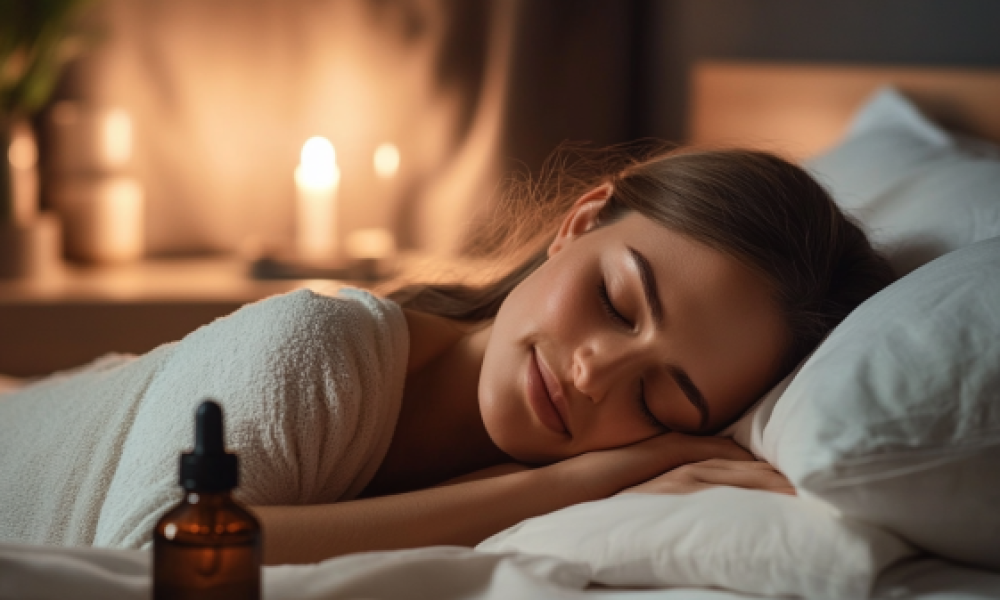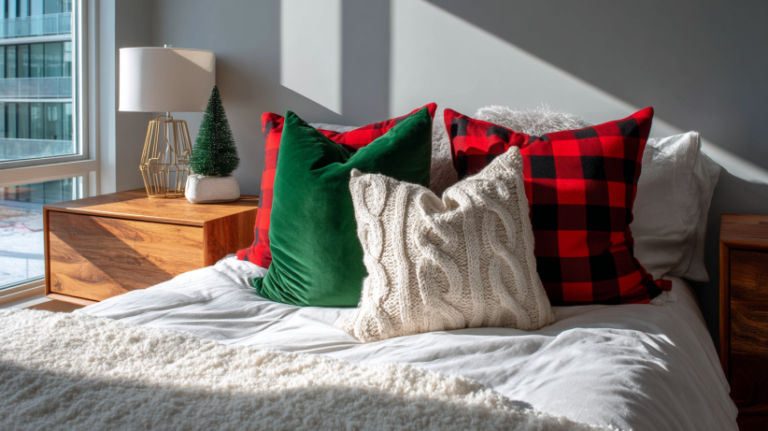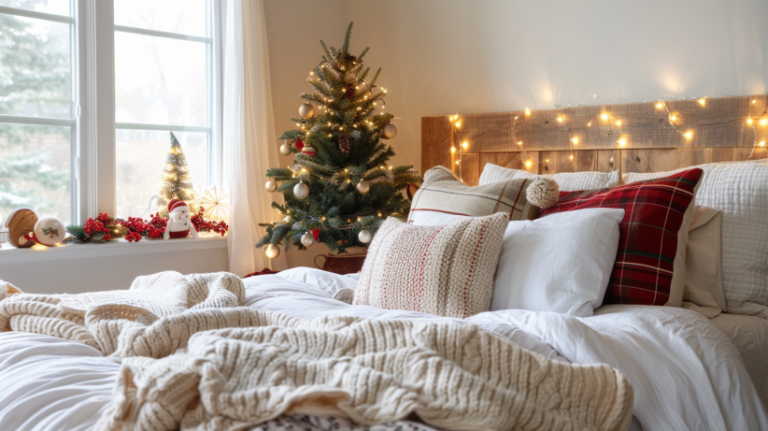Essential Oils That Support Relaxation and Sleep
Aromatherapy has long been used to promote relaxation, relieve stress, and improve sleep quality. Essential oils for sleep can help create a calming bedtime routine, making it easier to fall asleep and stay asleep. For a holistic guide to improving your rest, explore our pillar post on creating the ideal sleep environment. With natural properties that influence the nervous system, essential oils like lavender, chamomile, and cedarwood can contribute to a deeper, more restorative rest.
Key Takeaways
- Essential oils for sleep interact with the limbic system to promote calm and reduce stress.
- Top oils include lavender, chamomile, cedarwood, sandalwood, and bergamot.
- Methods include diffusing, sprays, topical use, and warm baths.
1. How Essential Oils Promote Better Sleep
Essential oils for sleep work by interacting with the limbic system, the part of the brain responsible for emotions, mood, and relaxation. When inhaled, essential oils can help reduce stress hormones, slow heart rate, and prepare the body for sleep. This interaction is what allows certain scents to create an almost immediate sense of calm.
When used as part of your nighttime routine, essential oils may help to signal your body that it’s time to wind down. The olfactory system is directly connected to the brain’s emotional centers, meaning the scents you breathe in before bed can profoundly affect how easily you fall—and stay—asleep. Just like cozy sheets or a warm bath, aromatherapy becomes a cue that it’s time for rest.
✔ Benefits of Essential Oils for Sleep
- Reduces anxiety and stress
- Promotes relaxation and calmness
- Regulates sleep patterns
- Supports deep and restful sleep
- Enhances bedtime routines
- Non-invasive and drug-free solution
📚 Other Reads: According to the National Sleep Foundation, aromatherapy can significantly improve sleep quality by creating a relaxing environment.
📌 Explore More: Minimalist Bedroom Decor: Creating a Clutter-Free Sanctuary
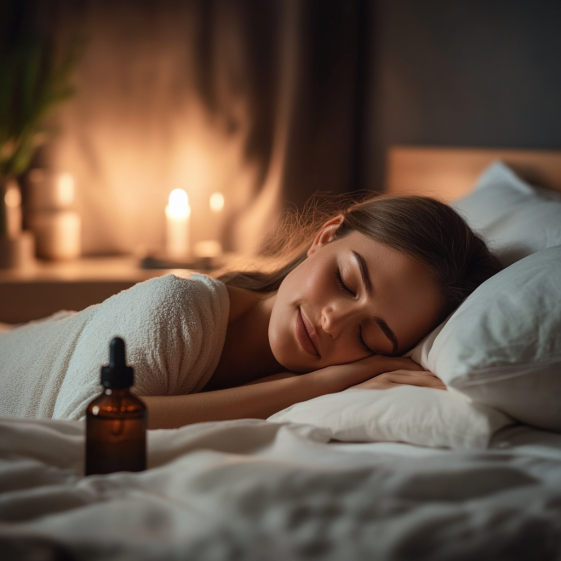
2. Best Essential Oils for Sleep and Relaxation
✔ Lavender Oil
Lavender is renowned for its calming properties and is frequently recommended for reducing anxiety and promoting sleep. A 2015 study published in the journal Evidence-Based Complementary and Alternative Medicine found that lavender improved sleep quality in college students with sleep issues. It’s the go-to oil for relaxation, helping both the body and mind to wind down gently.
✔ Chamomile Oil
Chamomile, particularly Roman chamomile, has sedative properties that help reduce anxiety and insomnia. It’s often compared to a warm cup of herbal tea in oil form—soothing and gentle. It’s also a favorite for children and those with sensitive systems, making it a versatile option for the whole household.
✔ Cedarwood Oil
This oil stimulates the pineal gland, which releases melatonin—the hormone that controls your sleep-wake cycle. Its earthy scent also promotes a sense of safety and stillness. Cedarwood can be especially helpful on nights when external stressors make it difficult to disconnect.
✔ Sandalwood Oil
Sandalwood has a rich, woody aroma that’s grounding and emotionally balancing. It’s ideal for those whose sleep is disturbed by racing thoughts. While it’s more expensive than some other oils, its potent effects make it a worthwhile investment for deep sleep seekers.
✔ Bergamot Oil
Unlike other citrus oils that are energizing, bergamot has unique calming properties. It’s great for people whose stress shows up in the form of tension headaches or a racing heart. It can uplift the mood while reducing stress, making it perfect for evening use.
📌 More Sleep Solutions: Mattress Hygiene: How to Keep Your Bed Fresh and Allergen-Free

3. How to Use Essential Oils for Sleep
✔ Diffusing Essential Oils
Use an ultrasonic diffuser with 5–10 drops of your chosen oil to fill the room with a soothing aroma. Try this 30 minutes before bed for best results. Diffusing helps to evenly distribute the scent throughout your space and is a gentle way to create a serene atmosphere.
✔ Pillow and Linen Spray
Create a calming spray with 4 oz of water, 1 tsp witch hazel, and 6–8 drops of essential oil. Mist your bedding lightly for a refreshing, sleep-friendly scent. This method is perfect if you don’t have a diffuser or want a travel-friendly option.
✔ Topical Application
Blend essential oils with a carrier oil and apply to wrists, temples, or the soles of your feet. A roll-on bottle is perfect for this and easy to take with you when traveling. This method offers a direct, personal aromatherapy experience with lasting effects.
✔ Warm Bath with Essential Oils
Combine oils with Epsom salts before adding them to the bath to help them disperse and avoid skin sensitivity. This is a luxurious way to unwind. The combination of heat, scent, and magnesium makes this a triple threat for pre-bed relaxation.
📌 More Nighttime Tips: Space-Saving Bed Frame Solutions for Small Bedrooms
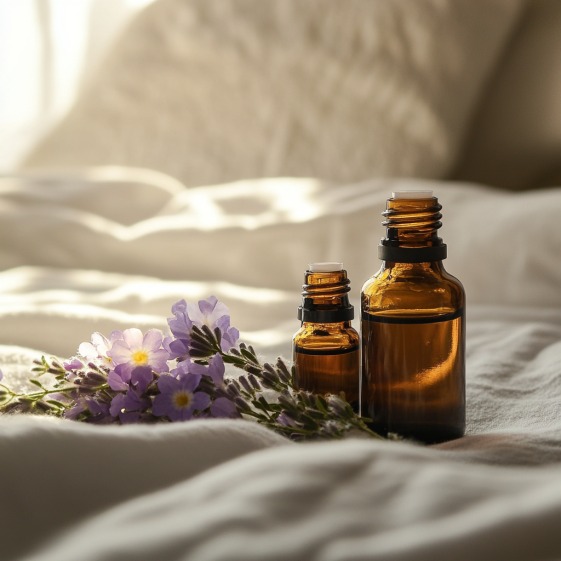
4. Safety Tips When Using Essential Oils for Sleep
✔ Safety Guidelines
- Dilute essential oils with a carrier oil before applying to skin.
- Do not ingest essential oils unless guided by a certified professional.
- Perform a patch test to check for allergic reactions.
- Store oils properly in dark glass bottles away from heat and sunlight.
- Choose pure, high-quality oils with no synthetic additives for best results.
- Keep oils away from pets as some essential oils can be toxic to animals.
📌 More Bedroom Wellness Tips: Smart Beds: How Technology is Revolutionizing Sleep
5. Creating a Sleep-Enhancing Aromatherapy Routine
✔ Step-by-Step Evening Routine
- Turn on your diffuser with lavender or cedarwood oil about 30–60 minutes before bed.
- Roll a diluted blend onto your wrists, temples, and neck for direct aroma therapy.
- Mist your linens with a calming pillow spray.
- Do some light stretching or deep breathing to settle your body and mind.
- End your night with a warm bath or a relaxing book in bed.
- Jot down a few thoughts or gratitudes in a sleep journal to clear your mind.
📌 More Relaxation Tips: The Science of Sleep: Understanding Sleep Cycles
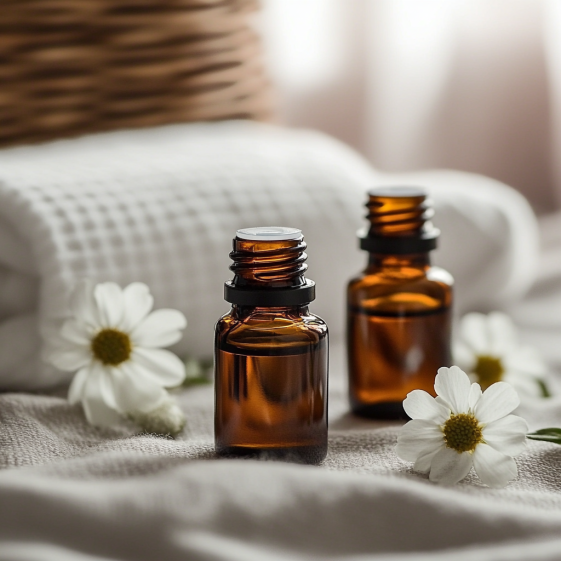
Using essential oils for sleep is a gentle, natural way to wind down your day and invite peaceful rest. With just a few drops, you can transform your bedroom into a sanctuary of calm and wellness. Experiment with different oils and routines to discover what works best for you.
FAQ
Which essential oil is best for sleep?
Lavender is widely considered the best essential oil for sleep due to its scientifically proven ability to calm the nervous system and reduce anxiety.
How do I use essential oils for sleep?
You can use them in a diffuser, make a linen spray, apply topically with a carrier oil, or add a few drops to a warm bath for ultimate relaxation.
Are essential oils safe to use every night?
Yes, essential oils are generally safe when used properly. Always dilute before applying to the skin and avoid overexposure to the same oil every night.
Can I mix different essential oils?
Absolutely! Many people blend oils like lavender and chamomile or cedarwood and bergamot for a personalized sleep-enhancing effect.
Are essential oils safe for children or pets?
Some oils are safe for kids, but always research and use child-safe oils. Avoid diffusing strong oils around pets, especially cats and dogs, without veterinary guidance.

